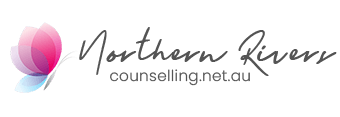What is impulse control disorder?
Amid the serene backdrop of Byron Shire, where life’s pace seems attuned to the natural ebb and flow of the coastal tides, the turmoil caused by impulse control disorders (ICDs) can be particularly stark. At Anne Evans Counselling, understanding and managing the complexities of ICDs is central to helping individuals find their equilibrium and regain a sense of control over their actions.
Defining Impulse Control Disorder
Impulse Control Disorders are a group of psychiatric disorders characterised by an inability to resist the urge to perform an action that is harmful to oneself or others. This category includes various conditions such as kleptomania (compulsive stealing), pyromania (compulsive fire setting), and more widely recognised issues like gambling addiction. At its core, ICD is defined by:
- Recurrent failure to resist an impulse, drive, or temptation to perform a harmful act;
- Increasing sense of tension or arousal before committing the act;
- Experiencing pleasure, gratification, or relief when performing the act;
- Feeling regret or guilt afterwards, in many cases.
The Impact of Impulse Control Disorder
Individuals with ICDs often feel at war with themselves, understanding the negative impact of their actions but feeling powerless to stop. This internal conflict can lead to distress, depression, and anxiety. The repercussions extend beyond the psychological, affecting relationships, professional life, and overall wellbeing.
The Role of Counselling in Managing ICD
Counselling plays a pivotal role in the management and treatment of ICDs. At Anne Evans Counselling, the approach to treatment includes:
Developing Awareness
The first step in therapy is to help clients develop an awareness of their impulses and the triggers that precipitate them. This self-awareness is crucial for learning to anticipate and manage urges before they lead to action.
Cognitive-Behavioural Strategies
Cognitive-behavioural therapy (CBT) is effective in treating ICDs by helping clients to understand the thoughts and beliefs that lead to impulsive behaviour. By challenging and reframing these cognitive distortions, clients can begin to alter their behavioural patterns.
Building Resistance to Urges
Therapy focuses on strategies to resist urges, such as delay tactics, distraction techniques, and finding healthier activities that fulfil the emotional needs driving the impulsive behaviour.
Emotional Regulation
Impulse control is closely linked to emotional regulation. Therapy helps clients develop skills to manage their emotions, reducing the likelihood of impulsive actions used as a coping mechanism.
Relapse Prevention
Education on relapse prevention is critical. Clients learn to recognize the early signs of a potential relapse and implement strategies to prevent it.
Tailored Therapeutic Approaches
Understanding that each individual’s experience with ICD is unique, therapy is customized to fit the specific needs and circumstances of the client.
Holistic Interventions
Given the holistic ethos of Byron Shire, Anne Evans Counselling also explores complementary therapies such as mindfulness, meditation, and lifestyle modifications to support the therapeutic process.
The Therapeutic Journey at Anne Evans Counselling
At Anne Evans Counselling, the journey to managing ICD is a collaborative one. Therapy provides a compassionate and confidential environment where clients can explore the origins of their impulsive behaviour and develop practical skills to overcome it. Through a combination of evidence-based therapy, personal insight, and supportive counselling, clients are empowered to make lasting changes.
Conclusion: Embracing Self-Control with Compassion
ICDs can disrupt the tranquillity of life, but with the right support, it’s possible to regain control. Anne Evans Counselling in Byron Shire provides a beacon of hope for those grappling with impulsive behaviours. By addressing the condition with understanding, professionalism, and a holistic touch, the path to recovery is not only accessible but also paved with the promise of a more balanced and self-directed life.



